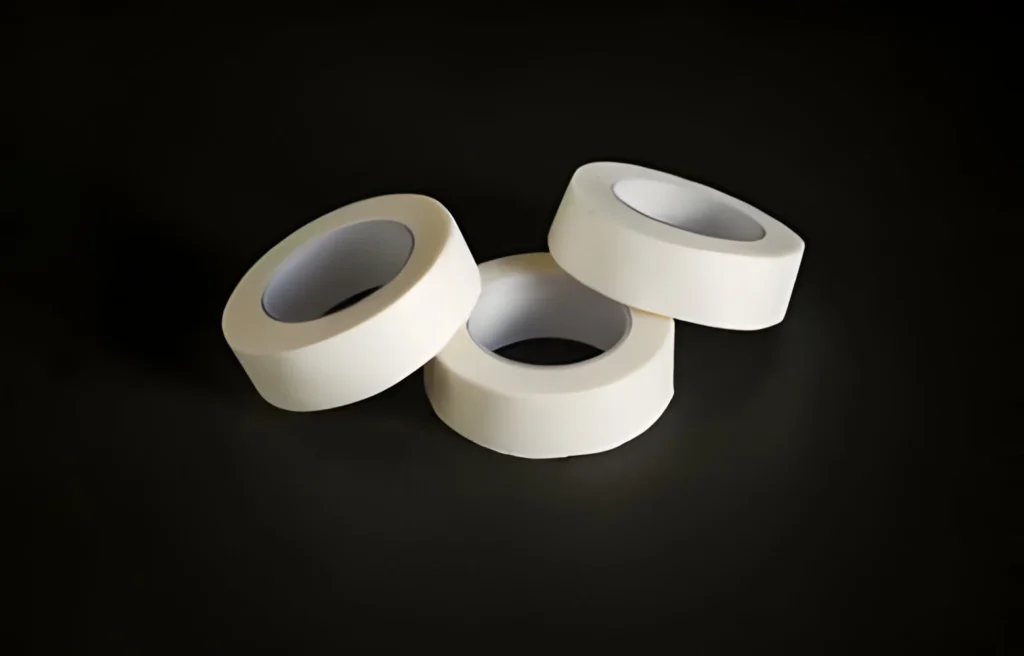Is the Surgical Tape Waterproof?
Surgical Tape is a staple in medical settings and home aid first aid kit that keep the dressing secure and protect the wounds. But when the wounds get wet, the common question that comes in the mind is “ IS SURGICAL TAPE WATERPROOF?”. To find the answer is nor simple yes or no.
In this blogpost, this would dive into the details of the surgical tape, by exploring its water resistance, various types and the alternative options for the waterproof scenarios.
Surgical Tape: A Spectrum of Moisture Resistance
It comes in various material , with the level of water resistance:
- Paper Tape: This is a breathable and gentle option which is not waterproof. This will quickly soften and lose adhesion upon contact with water.
- Cloth Tape: While offering some moisture resistance, cloth tape isn’t ideal for the wet environment. It might put some light splashes which eventually detach with prolonged exposure.
- Plastic Tape: The transparent tape offers better moisture resistance than the paper or cloth. It can handle light splashes and brief contact with water. However, it’s not entirely waterproof and might loose adhesion with the continuous adhesion.

Waterproof Surgical Tape:
Yes, there are surgical tapes that are specifically designed to withstand water! These are often made from:
- Silicon: Silicon based tapes offer excellent water resistance and are gentle on the skin. They are ideal for the situation where the dressing needs to stay secure during showering or bathing.
- Hydrocolloid: These tapes absorbs the moisture and create gel like barrier while offering waterproof protection while promoting wound healing.
When to Choose Waterproof Surgical Tape:
While, regular surgical tapes serves various purposes, waterproof options are ideal for specific situations.
- Post Surgical dressings: If your doctor recommends by keeping dressing dry after the surgery, waterproof tape ensures it stays secure during showering or bathing
- Chronic Wounds: For wounds that require frequent cleaning or exposure to moisture, waterproof tape provide a reliable barrier.
- Active Individuals: If you lead an active lifestyle that involves sweating or water exposure, waterproof tape keeps the dressing in place during the exercise or the outdoor activities
Factors to consider while Choosing Surgical Tape:
Consider the given factors, when you are making the purchase:
- Water Resistance: Regular tape might affect for minor cuts or dressings unlikely to get wet. For water exposure, choose waterproof silicone or hydrocolloid options.
- Skin Senstivity: If you have sensitive skin, choose the option of hypoallergic and latex free tapes to avoid irritation
- Adhesive Strength: Consider the level of adhesion needed. Stronger pates are ideal for high movement areas, while the gentle options work well for the delicate skin.
- Breathability: For the optimal wound healing, choose a breadthable tapes that allow air circulation.
Frequently Asked Questions:
Q:Is Surgical tape waterproof?
Ans: After surgical procedures, these tapes are used to secure the dressings and maintain the integrity of the surgical site. Its waterproof nature ensure that the wound remain protective during healing process.
Q:What tape is best for waterproof?
Ans: While, ordinary careful tapes fills different needs, waterproof choices are great for explicit circumstances.
• Post Careful dressings: Assuming your PCP suggests by continuing to dress dry after the medical procedure, waterproof tape guarantees it stays secure during showering or washing
• Constant Injuries: For wounds that require regular cleaning or openness to dampness, waterproof tape give a solid boundary. • Dynamic People: Assuming you lead a functioning way of life that includes perspiring or water openness, waterproof tape keeps the dressing set up during the activity or the outside exercises